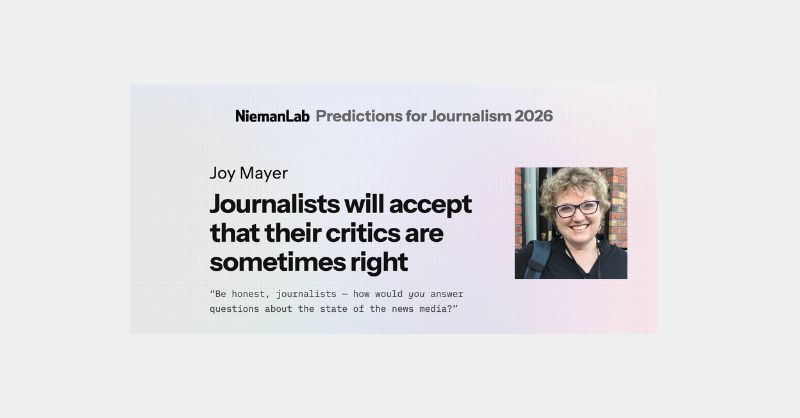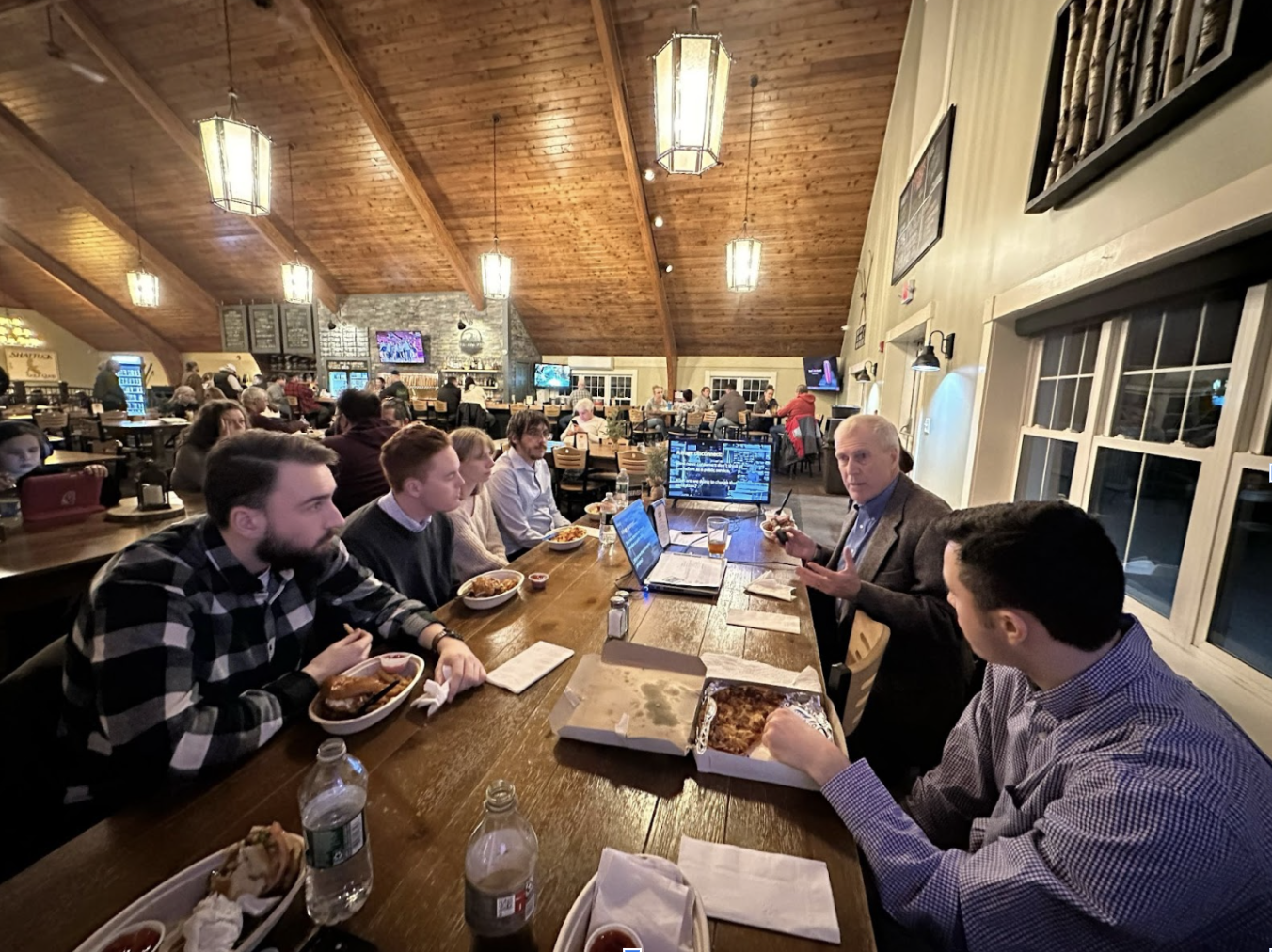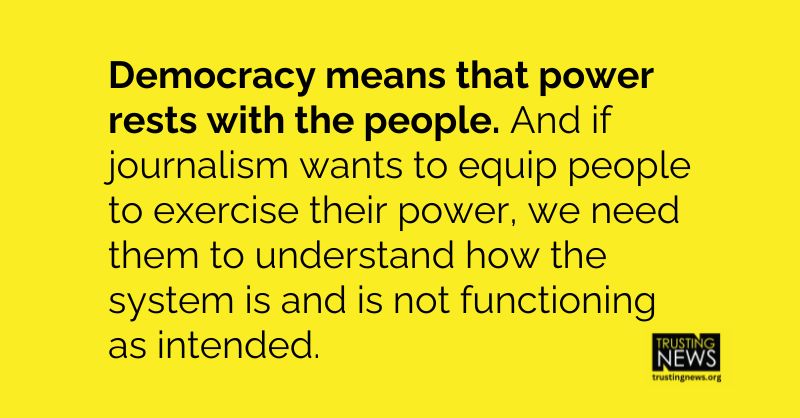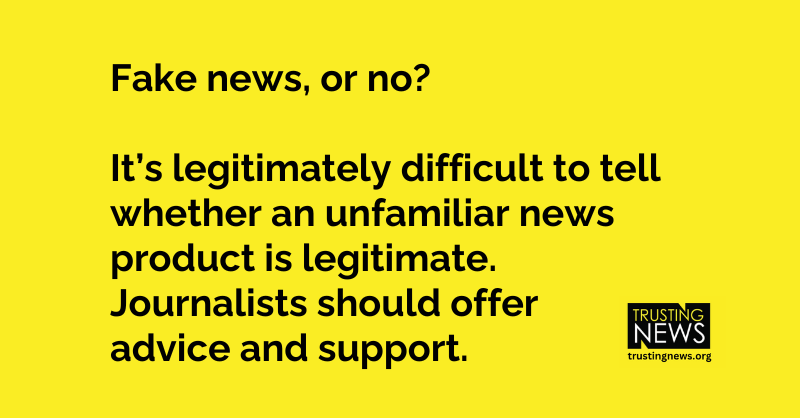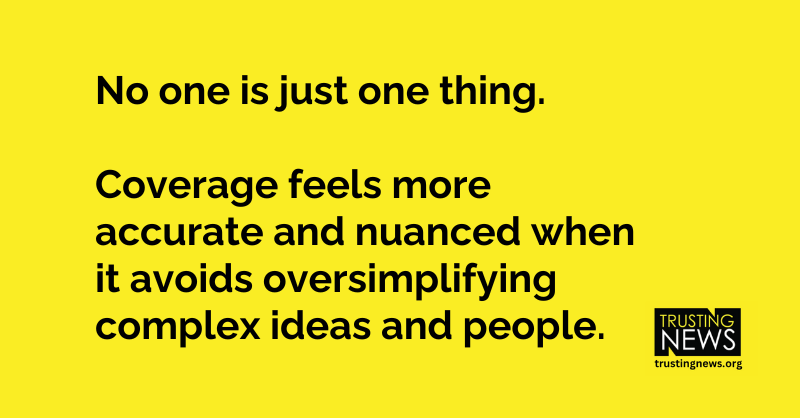
Human beings are complicated. We don’t fit into easy buckets, and we’re full of contradictions. We also hate to be misunderstood or oversimplified. It’s universally frustrating to have someone try to describe us and just not get it quite right. I heard an interview recently that helped clarify for me the role storytellers play in […]
Be wary of using one label to describe a complex person
Human beings are complicated. We don’t fit into easy buckets, and we’re full of contradictions.
We also hate to be misunderstood or oversimplified. It’s universally frustrating to have someone try to describe us and just not get it quite right. I heard an interview recently that helped clarify for me the role storytellers play in capturing nuance and complexity.
Baratunde Thurston is the host of a podcast called How To Citizen and the PBS show America Outdoors. He was a guest recently on the A Braver Way podcast, hosted by a cherished collaborator of mine, Mónica Guzmán.
On Thurston’s show, he connects with people who love being outside. He finds common ground and shared passions with people he otherwise wouldn’t have gotten to know. When talking to Guzmán, he described his experience connecting with competitive shooters. He has a traumatic family history with guns and generally does not have a positive attitude toward them.
But in this episode, he heard about the hunters’ perspective on the environment. They connected over their shared passion for preserving the natural world, and he learned about, among other things, the financial support from hunters that allows for some protected areas to exist.
They were not just hunters, and not just gun enthusiasts — which is how he said he might have been inclined to first see them. Instead, he came to see them as “nature loving, climate-forward gun people.”
Then he said this: “You just add descriptors, and it dilutes the weight on any single one. And it complicates.”
How often do journalists pick just one descriptor?
There are benefits to categorizing and labeling people, of course. It’s efficient. It helps jog people’s minds about who we’re talking about, and what kind of person we’re talking about.
It’s also not the whole story, and that can be damaging.
A specific example (and a lost election)
Guzmán invited me to be involved in the Braver Angels National Convention this summer. I was on two panels that both addressed the role journalists play in polarization and how trust in the news aligns with political leanings. In one of the sessions, the conversation turned to journalists’ reliance on “selective identifiers.”
A participant shared that she had run for a local elected office years ago, and the local newspaper insisted on primarily identifying her as a pro-life or anti-abortion activist. That stance didn’t have anything to do with the office she was running for. I can imagine that it was how she might have been known in the community, and it was an efficient way to remind the audience who she was. So that became her routine identifying clause (as in … “Jane Doe, pro-life activist, said this about why she wants to serve on the council”).
She said she lost a close election, and her strong impression was that the language choice by the journalists was a factor. She also suspected the journalists were intentionally casting her in what they saw as a negative light. (Who knows if that’s true, but it’s a powerful reminder about the assumptions made about our intentions when we don’t articulate them ourselves.)
If you add descriptors, you dilute the weight on any single one of them.
Joining one of the panels was John Diedrich, a Milwaukee Journal Sentinel reporter whose work we’ve told you about. His investigative reporting on guns took an intentionally depolarizing frame that our team has found inspiring and educational. We’re thrilled Diedrich will be taking part in our lineup of election training, outlined below.
More on labeling
We, and our partner journalists, hear over and over that one reason people don’t trust the news is that they think journalists oversimplify and stereotype them and people like them. We hear it from people who lean right politically. We hear it from communities of color. We hear it from rural communities.
The words we use to describe people matter. Here are a few links related to that:
- Our Anti-Polarization Checklist includes a question about the labels stories use.
- Research we did with the Center for Media Engagement describes how people who lean right feel mischaracterized by the news, including how they see people with diverse views lumped together in one bucket.
- Our research partners worked with journalists to study the impact of one-on-one conversations with journalists and people with low trust in the news. One key takeaway was that people feel misunderstood by journalism.
At Trusting News, we learn how people decide what news to trust and turn that knowledge into actionable strategies for journalists. We train and empower journalists to take responsibility for demonstrating credibility and actively earning trust through transparency and engagement. Learn more about our work, vision and team. Subscribe to our Trust Tips newsletter. Follow us on Twitter and LinkedIn.
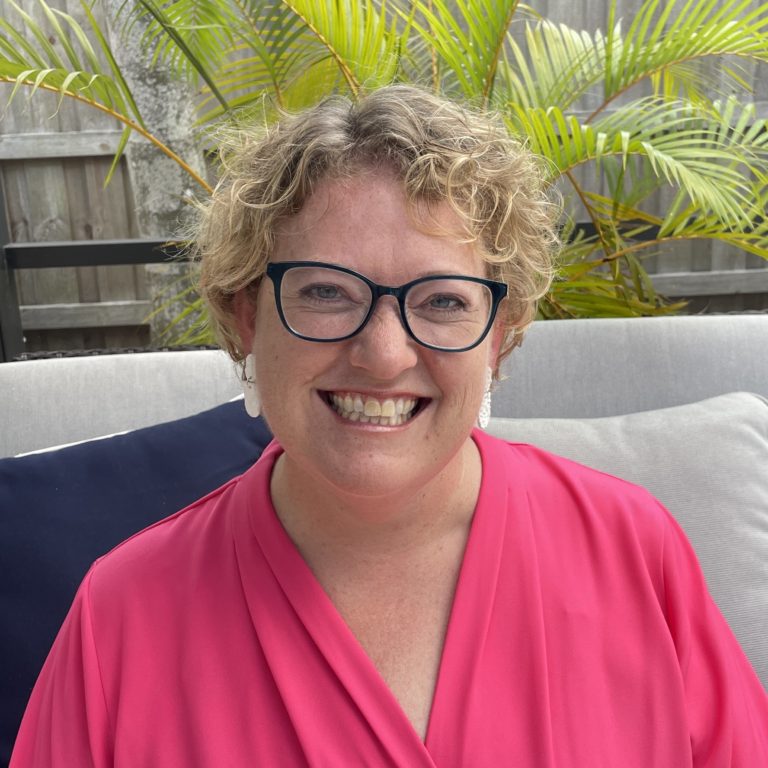
Executive Director Joy Mayer (she/her) founded Trusting News in 2016 after a 20-year career in newsrooms and teaching. She lives in Sarasota, Florida, and can be reached at joy@TrustingNews.org.
